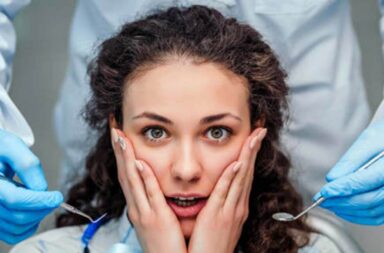Oral cancer does not involve any extensive screening protocols and can be easily diagnosed, often through routine dental checkups. It is one of the most prevalent forms of cancer of the body, owing to genetic predisposition, several unhealthy habits, and the presence of infections. Oral cancers present with a high fatality rate due to a lack of early diagnosis.
However, the dental team at Jackson Heights dental office offers a compassionate approach towards oral cancer screening at an early stage when the disease is most curable.
What is meant by oral cancer?
Oral cancer, also known as mouth cancer, is a common form of head and neck cancer. It forms in the oral cavity and develops when cells begin to multiply and mutate abnormally.
Oral cancer can develop in the following parts of your oral cavity:
- Lips
- The floor and roof of your mouth
- Gums
- Tongue
- Salivary glands
- Oropharynx (throat)
- Face
- Cheek lining
About 75% of people develop oral cancer due to the following habits:
- A family history
- Smoking
- Tobacco use
- Excessive alcohol consumption
- Spending a lot of time in the sun without sun protection
- History of human papillomavirus (HPV)
Why is an oral cancer exam important?
The goal of oral cancer screening is to detect mouth cancer or any precancerous lesions (overgrowths that may lead to cancer or malignancy) at an early stage. This is due to the fact that cancer at the initial stage is easiest to treat and most likely cured.
What are the warning signs of oral cancer?
During an oral cancer screening, your dentist will evaluate the oral and maxillofacial region for signs of any pathologic changes. These include:
- Red patches on the floor of your mouth that fail to heal.
- Slow-healing sores that bleed easily
- Hardened white or gray, raised lesions inside your mouth (leukoplakia)
- Presence of sore lumps or thickenings in your mouth or throat
- Inability to open your mouth completely
- Loss of taste
- Burning sensation in the mouth
What does an oral cancer screening include?
Your dentist may use a combination of oral cancer exam methods that include the following:
Screening tests
- Recording medical and family history
- Conducting physical exam
- Performing a palpation test to check for lumps or bumps
- Laboratory tests
- Imaging tests, including X-rays, MRI, and CT scan
Specific tests
- Fluorescent light test
- Exfoliative cytology
Conclusion
Regular annual oral cancer screening is important since it aids in early detection. Early signs of cancer can be detected during regular dental exams. However, if required your dentists may recommend additional tests like biopsy for a definite diagnosis.


